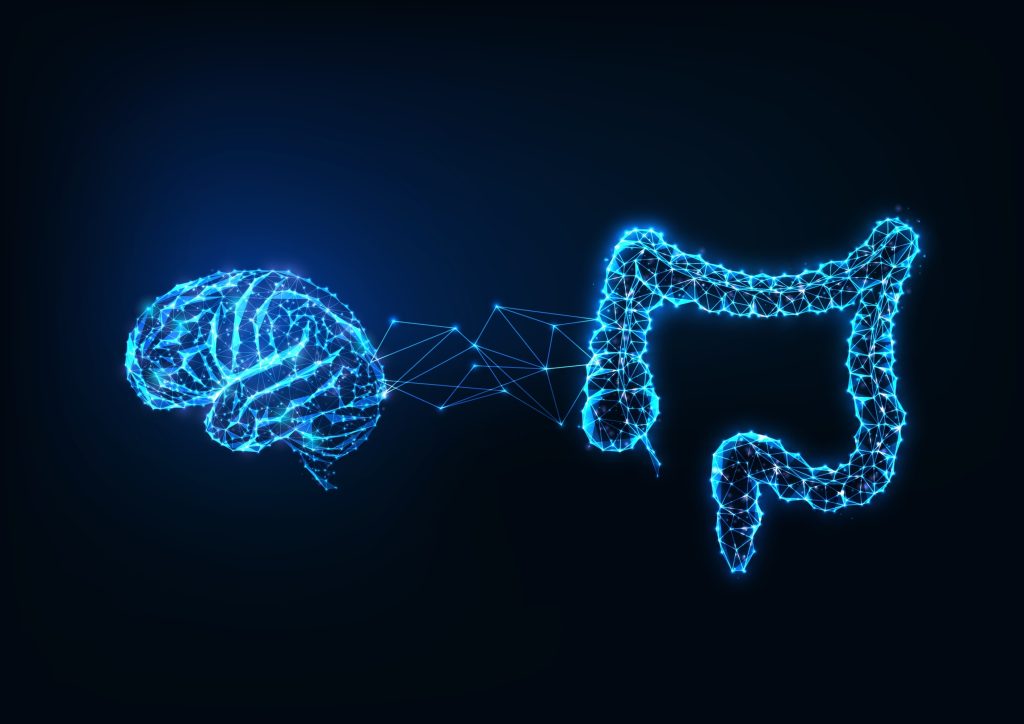Your cart is currently empty!
How Gut Health Shapes the Obsessive Mind

For decades, obsessive-compulsive disorder (OCD) was viewed almost exclusively through the lens of the brain, a problem of faulty neural circuits and chemical imbalances. The disorder, defined by intrusive thoughts and repetitive behaviors, has traditionally been treated with antidepressant medications targeting serotonin levels and cognitive-behavioral therapies designed to retrain habitual thought patterns. These approaches have transformed many lives, yet a significant number of patients continue to struggle despite diligent treatment. This persistent gap in understanding has prompted scientists to look beyond the brain for clues and in doing so, they’ve turned their attention to an unexpected place: the human gut.
In recent years, a growing body of research has begun to reveal that the gut may play a far more active role in mental health than previously imagined. The human digestive system houses trillions of bacteria, viruses, and fungi collectively known as the gut microbiome, which interacts intimately with the brain through what scientists call the gut-brain axis, a dense, two-way communication network that links neural, hormonal, and immune systems. This discovery has led to an extraordinary possibility: that microbial imbalances in the gut could influence the brain’s chemistry, potentially shaping emotional regulation, cognitive patterns, and even compulsive behaviors. The emerging evidence suggests that OCD might not be solely a brain disorder at all, but rather a systemic condition shaped by the body’s microbial ecosystem.
A Biological Superhighway
The gut-brain axis is one of the most fascinating and complex systems in modern biology. It connects the enteric nervous system, a network of roughly 500 million neurons embedded in the intestinal walls with the central nervous system via the vagus nerve, a bidirectional channel carrying messages between the gut and the brainstem. Such communication extends beyond neural signaling, strengthened by hormones, neurotransmitters, and immune molecules carried throughout the bloodstream. The gut functions not merely as a digestive organ but as an active regulator of emotion, stress response, and cognitive processing.
One of the key discoveries in this field is that the majority of the body’s serotonin, a neurotransmitter central to mood regulation and a target of OCD medication, is produced not in the brain, but in the gastrointestinal tract. Gut microbes influence the conversion of tryptophan, an amino acid from dietary protein, into serotonin precursors.

They also produce gamma-aminobutyric acid (GABA), dopamine, and short-chain fatty acids (SCFAs) like butyrate, all of which affect neural signaling and inflammation. These microbial byproducts can travel through the bloodstream and, in some cases, cross the blood-brain barrier, modulating brain activity directly.
When the gut microbiome falls out of balance, a condition known as dysbiosis, the gut-brain communication network can become disrupted. Dysbiosis increases gut permeability, allowing inflammatory molecules to leak into the bloodstream and trigger immune responses that may affect brain function. Chronic low-grade inflammation has already been implicated in disorders like depression, anxiety, and autism spectrum disorder, and OCD may be the next to join this list. What was once considered a purely psychological condition now appears deeply intertwined with the immune and metabolic health of the entire body.
Tracing OCD Back to the Gut

Perhaps the most compelling evidence for a gut connection in OCD comes from a 2024 study by researchers at Chongqing Medical University in China, published in the Journal of Affective Disorders. The team used a powerful analytical approach known as Mendelian randomization, which leverages genetic data to infer cause-and-effect relationships. By examining genetic variations in more than 217,000 individuals, the researchers identified specific bacterial taxa that appeared to either increase or decrease the risk of developing OCD.
Their findings pointed to three bacterial groups Bacillales, Eubacterium, and Lachnospiraceae UCG001 that were associated with higher OCD risk, while three others Proteobacteria, Ruminococcaceae, and Bilophila seemed to offer a protective effect. This distinction suggests that certain microbial configurations may predispose individuals to obsessive-compulsive symptoms, while others may stabilize mood and cognitive flexibility. Unlike earlier studies that merely noted associations, Mendelian randomization provides stronger evidence for causation, implying that the microbiome might actively contribute to OCD development rather than simply reflect it.
The implications are profound. Bacillales, for instance, is a bacterial order linked with immune activation and inflammation both processes increasingly recognized as central to psychiatric illness. In contrast, Ruminococcaceae is known to strengthen the intestinal barrier and reduce systemic inflammation. These mechanistic insights align with the idea that microbial health influences neural stability through immune modulation and neurotransmitter metabolism. Though this research is still in its infancy, it offers a biologically plausible framework for how the gut might shape the brain’s obsessive loops.
How Gut Microbes Shape Brain Function

Understanding how gut bacteria influence neural activity requires a closer look at the biochemical dialogue between the gut and the brain. Microbes produce a wide array of metabolites, chemical messengers that circulate through the body and influence brain chemistry. Short-chain fatty acids, such as butyrate and propionate, regulate gene expression in neurons and support the integrity of the blood-brain barrier. Meanwhile, bacterial enzymes affect the metabolism of tryptophan, directing it toward serotonin production or alternative pathways like kynurenine, which can have excitatory or neurotoxic effects depending on balance.
Inflammation represents another critical bridge between gut and brain. When dysbiosis triggers the release of pro-inflammatory cytokines, these signaling molecules can travel through the bloodstream and alter neurotransmitter balance. Cytokines may disrupt serotonin and dopamine regulation, both of which are central to OCD’s symptom cycle of obsession and compulsion. Chronic inflammation can also impair neural plasticity, the brain’s ability to adapt and rewire potentially reinforcing rigid behavioral loops characteristic of the disorder.
Animal research lends further support to this connection. In mice, alterations to the gut microbiota through antibiotics, diet changes, or fecal transplants have been shown to influence anxiety, social behavior, and repetitive grooming behaviors that mirror human OCD. Remarkably, when gut microbes from individuals with psychiatric disorders are transplanted into germ-free mice, the animals often begin to exhibit symptoms similar to those of the human donors. Though such experiments cannot yet pinpoint exact causal mechanisms, they underscore the intimate biochemical relationship between microbial ecology and brain circuitry.
Human Trials and the Early Role of Probiotics

Human research on probiotics and OCD is still in its early stages, but the preliminary data are intriguing. Some clinical trials have explored probiotic blends containing Lactobacillus and Bifidobacterium strains, which are known to influence serotonin availability, cortisol regulation, and stress response. For example, the combination of Lactobacillus helveticus R0052 and Bifidobacterium longum R0175 has been associated with reduced anxiety and lower obsessive-compulsive tendencies in healthy adults. However, these results are not yet specific to diagnosed OCD populations, and most findings come from small-scale studies.
Animal studies provide additional hints: mice given Lactobacillus rhamnosus GG or Lactobacillus casei Shirota exhibit fewer repetitive, compulsive-like behaviors and show altered activity in the brain’s stress circuits. While these effects are not directly transferable to humans, they suggest that probiotics may influence the same neurochemical systems targeted by OCD medications. Yet, scientists remain cautious. The microbiome is an incredibly complex ecosystem, and introducing new bacterial strains may produce unpredictable results depending on an individual’s existing microbial balance, genetics, and diet.
At this stage, probiotics should not be viewed as a treatment for OCD but rather as a potential adjunctive tool, a supportive measure for improving gut health and, by extension, mental well-being. Large, controlled clinical trials will be necessary to determine whether certain probiotic strains can meaningfully influence OCD symptoms in humans and how these effects compare to or complement existing therapies like cognitive-behavioral therapy and medication
Lifestyle, Diet, and the Microbial Environment

If the gut microbiome plays a role in OCD, then factors that shape microbial health may also influence mental stability. Diet is the single most powerful determinant of microbial diversity. Diets rich in fiber from fruits, vegetables, legumes, and whole grains feed beneficial bacteria such as Ruminococcaceae and Bifidobacterium, which in turn produce anti-inflammatory short-chain fatty acids. Conversely, diets high in processed foods, sugar, and saturated fats promote dysbiosis, inflammation, and oxidative stress. These dietary patterns mirror those already associated with depression and anxiety, reinforcing the notion that mental health begins in part with microbial nutrition.
Micronutrients also play vital roles in maintaining both gut and brain health. Vitamin D, magnesium, zinc, and B vitamins serve as cofactors in neurotransmitter synthesis and immune regulation. Deficiencies in these nutrients have been repeatedly linked to mood instability and may exacerbate OCD symptoms by disrupting serotonin and dopamine pathways. Omega-3 fatty acids, abundant in fish and certain plant oils, further modulate inflammation and support both neuronal and microbial membrane integrity.
Beyond diet, lifestyle factors such as sleep, exercise, and stress management influence the gut microbiome’s stability. Sleep deprivation can alter microbial composition within days, while chronic stress reduces microbial diversity and increases gut permeability. Exercise, on the other hand, promotes the growth of beneficial bacteria that produce SCFAs and enhance resilience to stress. Together, these findings point toward a holistic model in which gut and brain health are co-regulated by everyday behaviors and an ecosystemic view of mental health grounded in biology rather than metaphysics.
From Brain-Centric to Systemic Psychiatry

Traditional psychiatric models have long focused on the brain as the exclusive site of mental illness, but this perspective is rapidly evolving. The discovery of gut-based influences on OCD challenges the idea that neural dysfunction alone accounts for compulsive behavior. Instead, it suggests that mental disorders arise from interactions across multiple biological systems neural, immune, endocrine, and microbial. In this broader framework, treating OCD effectively may require addressing both brain circuitry and gut ecology.
Future therapies may therefore combine conventional approaches like cognitive-behavioral therapy (CBT) and selective serotonin reuptake inhibitors (SSRIs) with interventions that support microbial balance. Dietary modification, probiotic supplementation, and possibly fecal microbiota transplantation (FMT) represent potential avenues for integrated treatment. While FMT remains experimental in psychiatric contexts, its success in restoring microbial balance for gastrointestinal diseases demonstrates the feasibility of manipulating the microbiome for therapeutic purposes. Parallel research into anti-inflammatory and immunomodulatory therapies could further complement this strategy by reducing the biological stressors that link gut and brain dysfunction.
Such an integrated model does not replace neuroscience but extends it. By situating mental illness within the broader physiology of the body, researchers are beginning to close the gap between psychiatry and systems biology. This shift reframes OCD as a disorder of networked biology rather than isolated brain chemistry, opening new possibilities for prevention, diagnosis, and treatment.
Rethinking the Biological Boundaries of Mind
The emerging science of the gut-brain axis represents one of the most exciting frontiers in psychiatry. It challenges the old Cartesian divide between mind and body, revealing instead a continuous feedback system in which microbial communities influence neurotransmission, immunity, and emotional regulation. The discovery that certain gut bacteria may causally contribute to OCD marks a paradigm shift: mental health is not merely a reflection of the brain’s electrical activity but an outcome of complex interactions across the entire organism.
While research remains in its early stages, the implications are profound. If future studies confirm these findings, the treatment of OCD and related disorders could expand from targeting neural circuits to nurturing the microbial ecosystems that sustain them. This does not diminish the importance of established therapies but complements them with a deeper biological perspective. Current research suggests that mental health originates not solely in the brain but also in the gut, where trillions of microorganisms influence the chemistry of thought.
